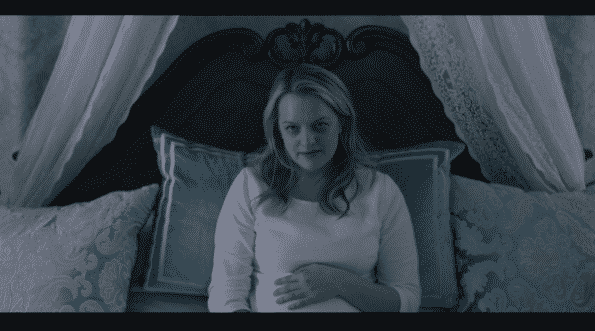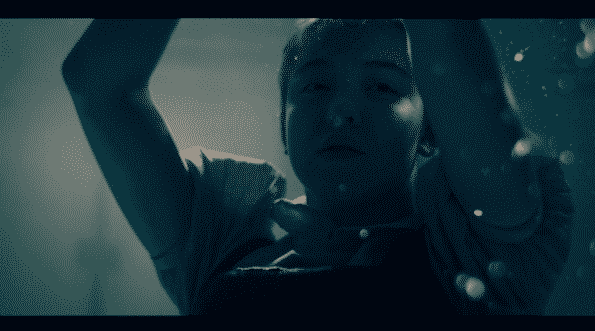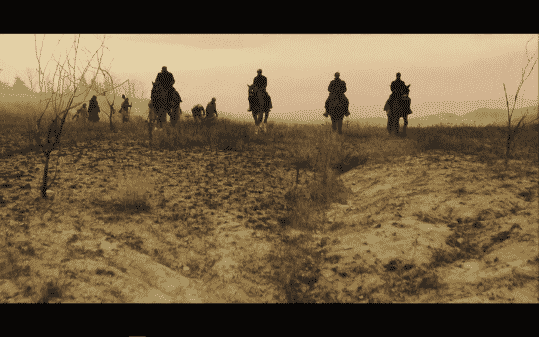The Handmaid’s Tale: Season 2 – Recap/ Review (with Spoilers)
In season 2, The Handmaid’s Tale finds itself in a sophomore slump as it finds itself in a perpetual loop barely broken in the season finale. Network Hulu Creator Bruce Miller Noted Cast June Elisabeth Moss Hannah Jordana Blake Serena Joy Yvonne Strahovski Eden Sydney Sweeney Nick Max Minghella Emily Alexis Bledel Janine Madeline Brewer…
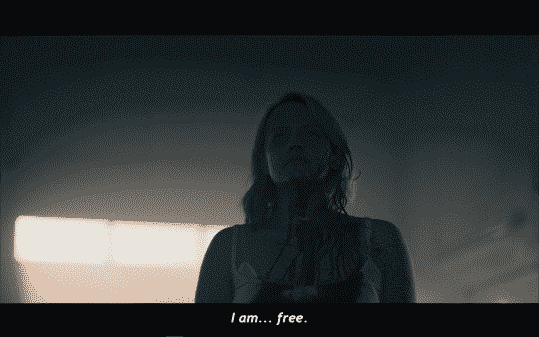
Spoiler Alert: This summary and review contains spoilers.
Additionally, some images and text may include affiliate links, meaning we may earn a commission or receive products if you make a purchase.
In season 2, The Handmaid’s Tale finds itself in a sophomore slump as it finds itself in a perpetual loop barely broken in the season finale.
| Network | ||
| Hulu | ||
| Creator | Bruce Miller | |
| Noted Cast | ||
| June | Elisabeth Moss | |
| Hannah | Jordana Blake | |
| Serena Joy | Yvonne Strahovski | |
| Eden | Sydney Sweeney | |
| Nick | Max Minghella | |
| Emily | Alexis Bledel | |
| Janine | Madeline Brewer | |
| Luke | O. T. Fagbenle | |
| Moira | Samira Wiley | |
| Rita | Amanda Brugel | |
| Commander Lawrence | Bradley Whitford | |
| Aunt Lydia | Ann Dowd | |
| Fred | Joseph Fiennes | |
Summary
With a little more than a year in Gilead, and now pregnant, June is as desperate as ever to make her escape. The problem is, her leaving the country, which she has multiple opportunities to do, is hindered by not having Hannah. So, one way or another, she sabotages herself. Meanwhile, her antics create a serious hot/cold relationship with Serena Joy. Someone who seemingly really would love to be close to June, since the other wives don’t compare to her, but with every embarrassment or insult, she is reminded she is fooling herself.
Not even just with June but in general. Serena Joy is in a world inspired by her creation that has made her the oppressed. It has forced her into the most trivial domestic duties and while June being pregnant gives hope, it also brings fear. This comes in the form of Eden, a young woman Fred sets Nick up with who is nothing more than an obligation to him. Through her we get a minimal idea of how children are raised and what life is like outside of suburbia. Also, through her Serena Joy realizes that between her nurture and June’s nature, their baby would probably not have a chance.
Heck, she may end up in the colonies, which we visit for a few episodes and see Emily and Janine at. That is, until Gilead begins to become more chaotic. For with a terrorist attack by a handmaid, many from the colonies are brought back. Which leads to some awkward encounters, like Janine seeing her daughter who is on the verge of death, and Emily showing she has no f***s left to give. After all, let’s not forget all she did to end up in the colonies. Yet now she is back, dealing with being raped again, and how oppressive things are? At this point, she may not have it in herself to commit suicide but dying may not be horrible.
Though, there is a light at the end of the tunnel. While Gilead is improving international relations, this is all sent to hell as Nick hands to Luke the letters from the Jezebels. With that, new sanctions and condemnations come. What remains of the American government in Alaska is given more aide and hope is slightly renewed. Well, at least for the viewer. As is made abundantly clear, women, handmaids especially, are not supposed to be aware of the outside world and so for them, hope comes in opening up to one another and saying their birth name. Creating a community beyond what was established before.
But, it isn’t just Handmaids. Marthas also seem to have a network and under Emily’s last commander, Commander Lawrence, she and June see how their network has the power to get them freedom. However, once again, just as June could leave and be free, guilt over Hannah keeps her from going and so she hands her weeks old child to Emily and heads back into Gilead.
Question(s) Left Unanswered
- What Happened To Mayday? Were they possibly involved in June and Emily’s opportunity to get out?
Highlights
June and Serena Joy’s Complicated Relationship
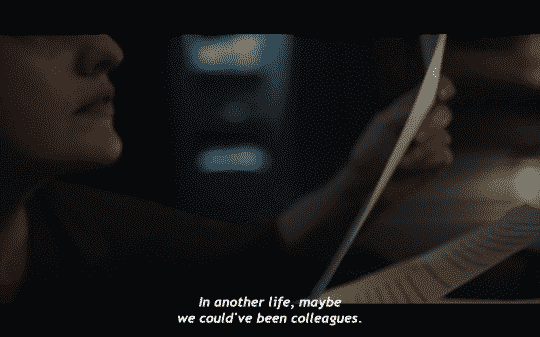
With Emily and Janine gone, June finds herself increasingly relying on the occasional conversation with those in the Waterford household, and Aunt Lydia, more than ever. However, the one relationship she focuses on which becomes the most interesting is the one with Serena Joy. Though often her tormentor, after the terrorist attack, which leaves Fred gravely injured, Serena Joy takes up his work. During this time, she asks of June to be her editor and June comes to realize, when power dynamics aren’t in play, she kind of enjoys Serena Joy. Even to the point of believing they could be friends in another life.
Something she keeps returning to no matter how much she upsets Serena Joy and Serena Joy retaliates. She checks on her after Fred beats her backside and even after Serena Joy holds June down to be raped, they still find a way back to June having sympathy for her. Which maybe you can contribute to June’s mother Holly beating in her ideals of women looking out for one another, something June isn’t famously known for, or her recognizing Serena Joy would rather go down with the ship than leave? Either way, these two have perhaps one of the few relationships you wish to hone in on and analyze throughout the whole season.
Getting Emily, and Part of Serena Joy’s Backstory

Unlike the first season, we aren’t treated to a huge number of backstories about what life was like for everyone pre-Gilead. However, there are a bit more details added to Serena Joy’s in the form of showing when she had a voice and why June having a baby means so much to her. It’s because, to silence her, she was shot and seemingly the damage made it where she couldn’t have a child.
As for Emily, we get to see her time as a professor and meet her family. Which really helps build why she is so miserable and also shows a similar complication to what June has. That is, knowing your family made it out of Gilead yet being stuck. Thus, you try to find ways to cope which include technically cheating on your partner, and trying to escape when you can. It’s just, unlike June, Emily had nothing holding her back and opportunities to escape didn’t come as frequent.
Low Points
Rita, Janine and Aunt Lydia’s Backstory Being Absent (Outside of Menial Details on Aunt Lydia)
Rita is a consistent presence on the show yet we know so little about her. We know she had a son at one time, but no further details have been given. Unlike so many characters from the first season, she remains stuck in the limited view of who she is now with no real answers to who she was in the past. Same goes for Janine. Though we see her evolve a bit from where we left off in season 1, every time she talks about who she once was, it makes you wonder if we may ever deep dive into her pre-Gilead life.
Leading to Aunt Lydia. The stoic and pragmatic figure cracks, just a little bit, this season. She mentions having a sister and possibly being involved in something which happened to her sister’s kid. Thus giving us our first look into this complicated figure. Yet, it doesn’t go further. Between her realizing she is opening up to June, of all people, and possibly dying in the season finale, the woman many love to hate may have left the show with a barely painted canvas.
June Getting Away With Far Too Much
Whether it is what she says or what she does, the fact June’s sole punishment is a brutal rape scene, to put her in her place, is hard to believe. For, in the beginning, June milks the absolute hell out of being pregnant and uses that to say and do what surprisingly didn’t lead to loss appendages or her tongue. After all, neither are needed to deliver a healthy baby. Also, from Janine to a few others, we see that Handmaids can suffer cruel and unusual punishment and still be put to work.
But things especially get weird as she runs away over and over and then her hot and cold relationship with Serena Joy. Which is what causes the rape that you recognize is a power move yet also feels like, well it is hard to describe. For a lot of the season, Fred is trying to assert his authority while winning back June as some sort of mistress. Then, with Serena Joy, because she is lonely and doesn’t connect well with the wives, or domestic life, June presents some real stimulation.
The problem is, what she loved about June she also kind of hates about her. So she tries to, in simple ways, check her. Making the rape seem like something they were building up to but also is such a heinous act you feel the need to wonder if it was a media move or something these characters would legitimately decide. Especially considering how rough June’s pregnancy was and what doing this to her could mean.
But, even after that act, even after the baby is born, she still has a smart mouth. Mind you, even in front of Aunt Lydia who, surprisingly, didn’t shock her with that cow prong more. Hell, to show you how reckless she gets, Fred hits her and she hits him back! Yet, while if that was Serena Joy she’d be beaten to the point of being darker than Rita, nothing happens to June at all. Making it seem she has come to the point of being untouchable.
The Death of Eden
When it comes to Eden, the main issue with that character is she doesn’t meet expectations. For the first time in the show, we get to meet someone who grew up based on Gilead principals vs. someone coerced to believe in them or who believes in them because they are the enforcers. So, taking note she was young and grew up in this world, there is this hope she’ll give us insight, maybe as she gets to know June and have conversations, question the world she knows. Heck, as Serena Joy takes her under her wing, maybe, as much as she speaks with June, remind her of her place. Something beyond what we got here.
For all Eden becomes, in the long run, is a sacrificial lamb. A baby killed for falling in love with the wrong person and being damned for not repenting it. Which, because that love affair came out of nowhere and Eden, honestly, was never made to be as interesting as expected, her death meant so little beyond its intended shock. One that became just a plot point to set up what was needed for the finale. Both to hype it and push Serena Joy to let June take her baby and have it raised out of Gilead.
On The Fence
Meanwhile, Back In Canada
Luke and Moira’s importance to the story takes a serious nosedive in season 2. To the point, they seemed almost like guest stars. In fact, Samira Wiley was campaigned for as a guest star when it comes to the Emmys. But this downgrade hits Luke far more than Moira. For Luke, there isn’t much, if anything really, done with his character. He does have a bit of a confrontation when Fred and Serena Joy visit Canada, and does meet June’s new beau Nick, but that’s sort of his high point. Well, alongside getting the Jezebel letters.
As for Moira? Unlike Luke, we see her try and struggle with moving on. She finds herself unable to get intimate with someone new, past just hooking up, and as someone who works at a welcome center, she tries to help new refugees become acclimated. It’s definitely a smaller focus than what we previously got, but I guess it would be better than getting cut altogether. Plus, she does get to come face to face, through a tinted window, with Fred and protest Gilead visiting Canada.
We Got To See The Colonies
Though a brief, and almost forgettable visit, in the long run, of the dreaded colonies. But outside of it being the beginning of a sort of whisper revolution, in which the women of Gilead began to bond together, not much else is worth noting from our time there.
Getting Some Sort of Idea of the State of America
Throughout the season we see maps and hear about the state of America. Oprah even is a newscaster who helps report that it seems the new capital is in Alaska and things are okay. However, as for seeing the state of America? More on the fall of the US? Well, we get a flashback which kind of gives us what happened the day of, and leading up to the fall of DC, but outside of that? We’re still left in the dark about how Gilead expanded in masse and what is its actual size. Never mind where is it having issues maintaining control?
Overall: Mixed (Stick Around)
The main issue with The Handmaid’s Tale is the same issue for any book that is adapted with multiple seasons in mind. What could be handled in one season is stretched to the point that it can barely contain its elasticity. If not, to put it a different way, it has to water down its source material so much to make it stretch that it loses its kick.
Thus making it where the hero’s journey loses its sense of danger for you begin to believe nothing can harm them. Then, when it comes to the supporting cast, you are left wondering if they truly plan to develop this character having an independent life and focus, or are they strictly in existence for the benefit of the lead? Much less, when it comes to embellishing things, often likely for the need to make something entertaining, could it have been done a better way? One which didn’t seem like a cheap shock to inspire articles for free promotion.
Season 2 wrestles with this and more and while it has the occasional victory, also it shows this is a show which can’t go on forever. This is not the type of show which should venture for that magical syndication number of 100. At this point, it is becoming hard to imagine this supporting another full, 13 hour long episodes. Without it seriously dropping in quality anyway. For with June getting this far with her attitude, the need to worry about her is dissipating and the chaos which we see in Gilead makes you believe the beginning of the end needs to become official.
Hence the mixed label. While the show remains interesting and you can understand, to a point, the hype, the writing is on the wall. Unless it begins to craft its endgame, this will just become a show Hulu is seemingly milking because most of its programs don’t receive anywhere near this kind of attention. Nothing more, nothing less.
Has Another Season Been Confirmed?: Yes
Follow Wherever I Look on Twitter, Like us on Facebook and Subscribe to the YouTube Channel.
Check Out Other TV Recaps
Episode List
| Episode 1 |
| After her grand act of defiance inspiring a non-violent protest, it is time to see how Aunt Lydia plans to punish the girls and whether June’s pregnancy means anything in regards to that. |
| Episode 2 |
| The colonies are finally seen as well as an update on two favorites – Emily and Janine. |
| Episode 3 |
| Guilt over not being the perfect mom, nor feminist, haunts June as she reminisces about her mother and how she has been as a mom. |
| Episode 4 |
| How long can you fight and be defeated, be the cause of others misery and death, before you decide to give up? It seems June has found out the answer. |
| Episode 5 |
| Just as it seemed the world broke and killed June and she has assumed the role of Offred, she gets two serious wake-up calls. |
| Episode 6 |
| As Serena Joy and June continue their complicated relationship, something possibly game-changing happens at the end of the episode. |
| Episode 7 |
| A quiet revolution has begun with a bang and it seems Lillie’s bomb was just an exclamation point before a new chapter. |
| Episode 8 |
| Many women get a taste of the old world and the slightest bit of hope things could get better for them. However, said blessing is finite. |
| Episode 9 |
| A trip to Canada temps Serena Joy, Nick meets Luke, and June searches for a godmother. Including Aunt Lydia who opens up to her. |
| Episode 10 |
| Perhaps the happiest day of June’s life in a long time also meets yet another where she ends up getting someone killed. |
| Episode 11 |
| Desperate times call for desperate measures and June finds herself having to put her baby first as things become impossible for her. |
| Episode 12 |
| June may find herself responsible for yet another death as Emily finds herself in a rather peculiar commander’s home. |
| Episode 13 |
| For those who thought The Handmaid’s Tale was in a perpetual cycle, the wheel gets broken and it seems Gillead may descend into chaos. |
TV Shows We’re Covering This Season
Images used for editorial and commentary purposes. All rights remain with their respective copyright holders.

